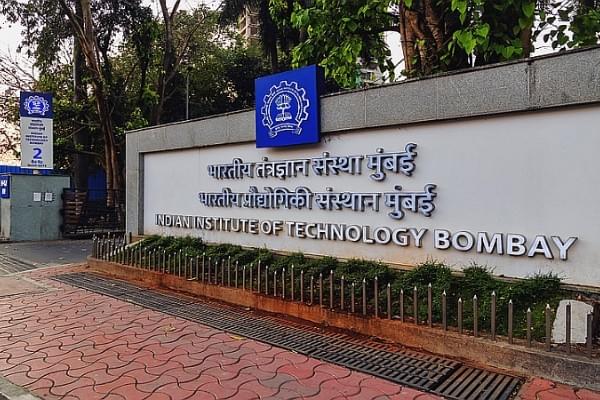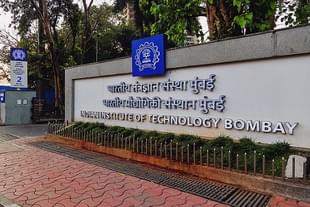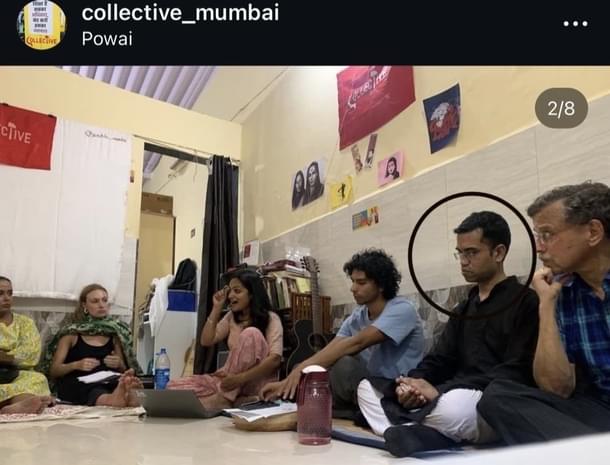Commentary
Communist Faculty, Pro-Terrorist Speakers: How IITs Are Turning Into Playgrounds For Radical Ideologues
Anonymous Contributor
Jun 04, 2025, 05:50 PM | Updated 05:54 PM IST
Save & read from anywhere!
Bookmark stories for easy access on any device or the Swarajya app.


India's premier technical institutions are witnessing a troubling pattern of ideological uniformity that deserves urgent attention. Consider Professor Anupam Guha of IIT Bombay's policy center, who recently praised an MIT student's controversial pro-Palestine graduation speech, calling her actions "admirable" and courageous.
This incident reveals a deeper concern about how faculty political activism may be shaping India's future engineers and policymakers. Guha works on AI, AI policy, and AI and Labour.
Later, he deleted the tweet without any explanation. But this is not the only controversial view he put out in the open.
A few years back, Guha labelled the action against the strike at the Sterlite Plant as “state terrorism” and proudly proclaimed “Down with Vedanta!” He has also promoted the Irish Marxist View website on the Kashmir conflict and called the abrogation of Article 370 “constitutionally illegitimate”, parroting separatist views.
In his radical view, those who use the term “tukde tukde gang” are participating in “terrorism” and their data “must be archived” so that they “will be prosecuted” in the future.
Guha publicly and proudly calls himself a “communist”. He is not just an online communist but a very active member of the communist organisation.
Guha participated in an event organised by Collective Mumbai, a communist organisation building a “revolutionary student-youth movement” for “a socialist future of India”. During this event, “Comrades discussed successes and failures of contemporary women’s movement”, says the caption of an Instagram photo of Guha surrounded by communists.
For the same organisation, Guha also delivered a talk on “AI, Labour, and Sovereignty” that promoted “pro-people AI after and beyond DeepSeek”. Comrade Guha is, as this author is told by sources, tasked with the research on AI Policy, funded by the Ministry of Electronics and Information Technology.

This is not a standalone incident happening at IIT Bombay. In 2023, the IIT-Bombay had invited pro-Hamas, antisemitic, and anti-Hindu guest speaker Achin Vanaik for a talk. However, after the strong opposition by students, the talk was cancelled by the institute.
Similar concerns about ideological uniformity extend beyond IIT Bombay to other premier institutions.
Last month, IIT Gandhinagar’s Department of Humanities and Social Science (HSS) was found promoting research theses promoting Islamisation like “Fishing With Faith: Islam, Indigenous Knowledge, and Ecological Sustainability in Lakshadweep”, “Robes of Authority: Sunni Ulama, Sartorial Tradition, and Embodied Piety in Malabar”, “From Gods to Jinn: Ontological Rewriting and the Islamization of Spirits in Kerala”, and “Beyond Cultural Brokers: Speech Mediation and Ritual Efficacy in Mosque Speeches in Kozhikode.”
The same department is notorious for recruiting leftist faculty and promoting absurdities in the name of research.
Its faculty member Ashish Xaxa guided a former activist associated with the Islamist organisation SFI on the research of the 2002 riots. Flouting all the academic rules and norms, the defence of Purohit’s thesis happened behind closed doors, and no external students were invited to cross-examine the senseless claims. The thesis was not uploaded on the online depository either.
Another faculty member, Nishaant Choksi, from the Department of HSS, was found to be having a link with the evangelical NGO named Aadilok, and he worked in the sensitive tribal areas of the Narmada valley. When exposed, Choksi threatened the students with action.
The same department had invited a Kashmiri separatist and pro-terrorist speaker, Ather Zia, for a talk on neocolonialism (implying that India is colonising Kashmir) and gender discrimination in Kashmir. The speaker later glorified a convicted terrorist, Afzal Guru, on her Instagram. In another research, a student of HSS-IITGn blamed ‘brahminical hegemony’ for the deterioration of the Sundarbans.
The concern is not that professors hold political views, but that institutional hiring practices may have deliberately created an environment where only one set of perspectives is represented, depriving students of the intellectual diversity essential for critical thinking.
Recruitment of IIT’s professors happens through referrals from the existing faculty members who have a particular ideological bias. This influence extends to student elections, where professors may leverage their positions to support candidates who align with their political views, potentially compromising the independence of student governance.
As has happened in many institutes, the faculty members promote favouritism, regionalism, and ideological conformity. Soon, the humanities departments became a citadel of ideological activism in the name of education.
On the same campus, the STEM faculty members might have a different viewpoint from the humanities professors. Still, the political thoughts of all students are to be shaped by the humanities professors as they engage in those subjects as part of the curriculum.
The STEM faculty members are so engaged in quantum theory, plasma research, or semiconductor chip development that they do not have the time to provide a different socio-political perspective to students. Thus, students are exposed to just a predominant and deliberately cultivated viewpoint, and unsurprisingly, they develop an inclination towards wokeism.
Another question is about the efficiency of the spending of taxpayers’ money. Is it allowed, or even okay, for faculty members to be associated with communist and missionary organisations while on a government payroll? How to make sure that government resources are not wasted on organisations with radical agendas?
Thus, this piece needs to be concluded with three tougher and specific questions for the Ministry of Education and the IIT Bombay’s director and administration:
1. What oversight mechanisms exist to ensure that faculty's political activities do not compromise the institutional mission of producing skilled engineers and researchers?
In the case of IIT-B, were they aware of the ties of Collective and Anupam Guha? In the case of IIT-Gn, were they aware of the ties of Aadilok and Nishaant Choksi? How does the Ministry of Education evaluate whether faculty members involved in political activism can objectively conduct policy research that serves national interests rather than ideological agendas?
2. To date, how many students have completed PhDs under Guha? How much qualitative research has he produced during his tenure? Why hasn't a single author's paper been published by him? Which professor suggested Anupam Guha’s name as a faculty member? Was Guha’s background verified thoroughly at the time of his recruitment in 2019?
3. What are the ethical boundaries for faculty members who use their institutional platforms to organize political protests, particularly when such activities may influence students under their academic authority? If no, then what action was taken against Guha as he mobilised students for anti-CAA protests at the IIT-B campus?
The questions must be answered by the respective institutions as well as the concerned government ministries and departments.





